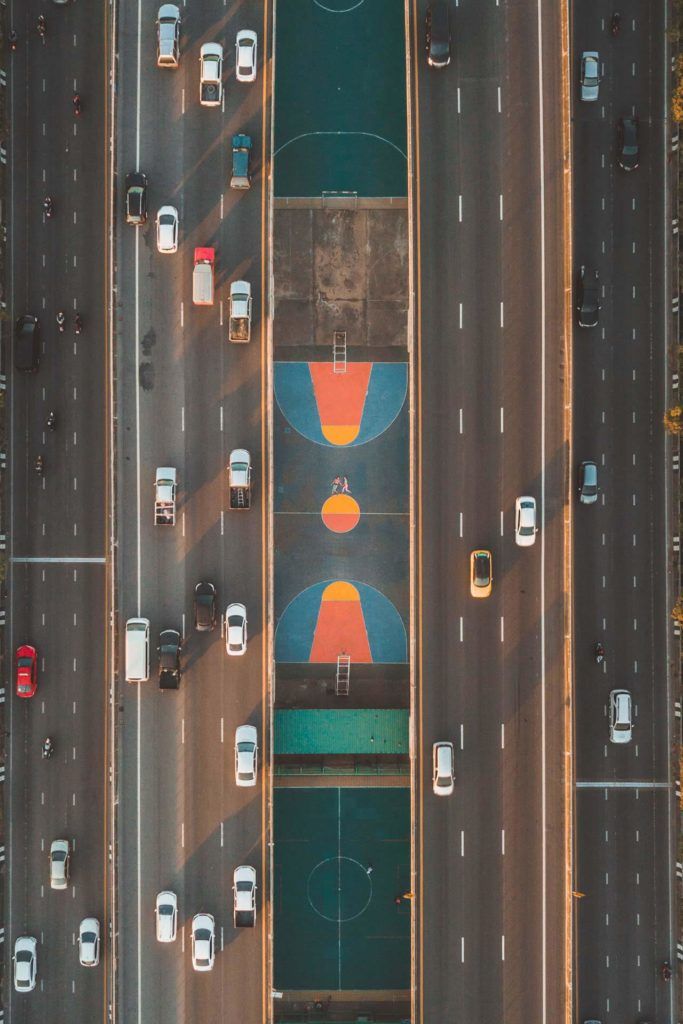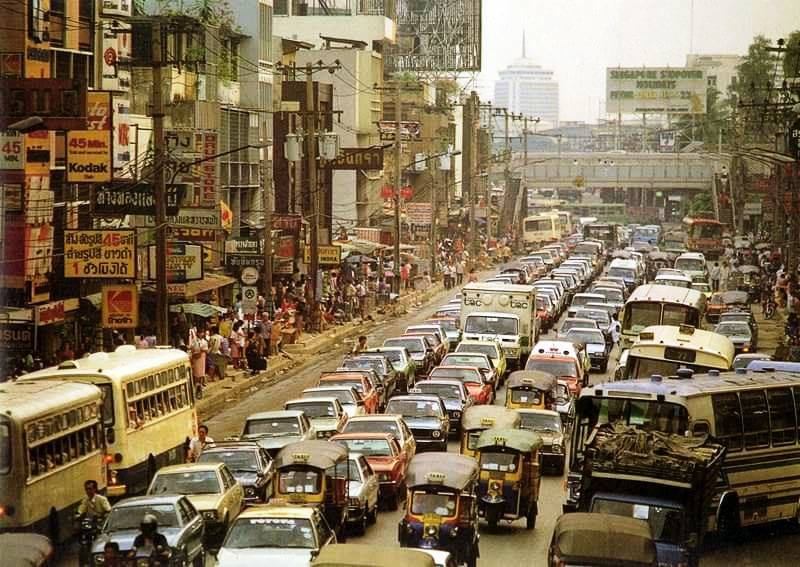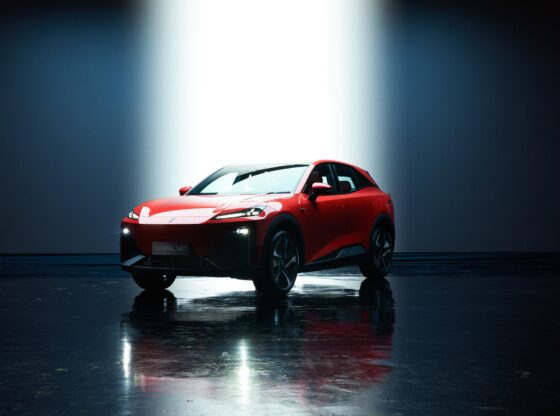![]()
Expect the ways authorities raise money from motorists to undergo significant changes

I was musing to myself the other day about the value of toll booths on motorways. It’s amazing what weird thoughts pass through your mind during the tedium of lockdown. Stick with me, I hope I have some serious points to raise here.
What purpose do toll booths serve? Well, chief among them is, of course, to help pay retrospectively for the construction of the road they occupy (or maybe in anticipation of the next one down the line). Tick!
Given that drivers have to stump up the cash, perhaps the sums charged will deter them from making the trip and lead to fewer cars on the roads, improving air quality. Tick!
Then, of course, they help provide employment both for the builders of the booths and, subsequently, the toll collectors who occupy them. Tick!
I’m sure there are other reasons, but let’s concentrate on these three. But, before I do, allow me to say that – in my perception – the setting up of toll booths between Pattaya and Bangkok seems to have increased in recent years, so I hope you will feel my thought processes are of relevance to you. I also ought to declare that I am not the biggest fan of toll booths. I don’t mind paying the money; I do mind the delays they can cause.
Point 1:
Toll booths as a money-raiser to pay for current and, perhaps, future roads. I’m not going to argue against the concept. Back in my youth, I travelled from Bangkok down to Pattaya in the late 1970s – by public bus! It was akin to how I would imagine a journey in the Wild, Wild West might have been. At this distance, I won’t pretend to recall how long the journey took, but I know it felt like several hours. The subsequent building of the motorway between the two cities was very welcome and now, with the advent of Suvarnabhumi Airport, compared with experiences from Don Muang, getting to Pattaya is positive bliss.

The concept of paying for road use is far from new. Turnpikes in the UK date back to the 17th century, though I admit that the first time I can recall paying attention to the word (I ignored London’s Turnpike Lane) was in Simon & Garfunkel’s song America – “counting the cars on the New Jersey Turnpike”. What’s a turnpike I thought. I was young-ish!
Is charging for road use fair?
Well, I find it difficult to mount an argument against it. If the price of building a road comes out of the public purse that means everyone – driver or not – pays for it. If you are not in the habit of driving between Bangkok and Pattaya or are in no rush and so are prepared to travel by a slower route, why should you pay for others to test their Formula 1 skills?
Point 2: Do tolls form deterrents to travelling which will lead to fewer cars on the road? Not sure, but I think we all need to face the following – those keen for mankind to stop polluting their own planet are clear: we need fewer cars on the road and the ones we do have will need to be propelled by ‘fuel’ other than petrol and diesel. Electric vehicles (EVs) are coming. It’s not an ‘if’; it’s a ‘when’. Expect fewer oil millionaires in years to come. Sad!

I have read that the Thai Government says it has a coordinated plan to boost the number of passenger plug-in hybrid electric vehicles (PHEVs) and battery electric vehicles (BEVs) to 1.2 million units and have 690 charging stations available by 2036. The UK Government is being considerably more ambitious in declaring that it wants the sale of all new internal combustion-engined (ICE) cars, that’s petrol and diesel to you and me, banned by 2030. Progress may be slower in Thailand (some might say they are being more practical, 2030 sounds crazily quick to me), but change is coming.
This will result in another dilemma for the Thai Government. Back in 2019 (the latest figures I could find), it was levying 6.5 baht on a litre of petrol and consideration was being given to raising taxes based on how much carbon dioxide the vehicle’s exhaust pipes were kicking out. Either way, whether directly at the service station pumps or as a tax on CO2 output, both were/are dependent on cars burning fossil fuels. What happens when electric vehicles are in the majority? The money raised from petrol sales will decline and, eventually, disappear. Electric vehicles don’t spew outgases, so the CO2 tax won’t work, either. It will leave a hole in the Thai Government’s coffers and something will have to be done to replace that money.
The UK Government is facing a similar Catch-22. It wants drivers to switch to EVs, but it wonders what will replace the considerable the oil duty (in the UK it raises 57.95 pence per litre of fuel – that’s about 24 baht, close to four times that of Thailand). There is a lot of talk in the UK about Road Pricing, basically charging drivers for the number of miles they travel. Cameras would be set up everywhere with the ability to recognise car number plates and, thereby, the number of miles you have travelled. The more miles you cover, the more you pay.
Whether this will be a flat rate or one based on the type of vehicle you drive and/or the time of day you travel (in a bid to reduce the impact of the morning and evening rush hours), remains to be seen. Democratically-elected Governments are frightened of it and feel that introducing road pricing might see them voted out of power. But, what are the alternatives? A lot of time and thought is being devoted to just this problem in the parts of the world that have signed up to the Paris Climate Agreement (which includes Thailand).
Road pricing could, of course, knock the need for toll booths on the head. If you have cameras everywhere tracking where people are going, the authorities could present a monthly invoice to car owners for the miles they have covered. If they need to apply a premium for the miles covered on motorways that should be an easy task. The evidence is readily available. It should be noted that road pricing also brings into question the tricky subject of people’s privacy. For example, spouses seeking to cheat on their partners (there are short-time hotels all over Pattaya for this very purpose, don’t be prudish and claim you were unaware) might baulk at the idea of cameras watching their every move in a car.
Point 3: As a source of employment? Of course, building toll booths represent income for the companies that build them and employment for their workforce for the duration of the build. No problems there. The booths also require people to operate them. Or do they? A fair time back the idea was introduced to allow drivers to collect tokens as they passed through certain tolls, only paying at their final exit. Result? Fewer toll booth operators required and fewer delays for the motorist. Who hasn’t fumbled around trying to find the right money for a toll booth to avoid the booth operator having to hand you change and dropping some of it?
The fact is that there are other ways to collect money. In the English county I call home we have the Dartford river crossing – a combination of a bridge (going south) and tunnels (north). The money required to pay back and cover the building of all was raised at the tolls quite some time ago. Stop charging you might say. Dream on! The toll booths have gone, but the authorities have instigated a system whereby you go online (phone, tablet or computer) within a day of crossing the River Thames and pay a toll with a credit card or risk being fined a substantial sum. Those who regularly make the crossing can get a form of season ticket covering a set number of journeys. Most Thais, however poor, seem to somehow manage to own a smartphone so should be able to comply (though not so sure about the having a credit card aspect).
I don’t see why that couldn’t be copied in Thailand provided the authorities are willing to stump up for the number plate recognition technology needed to make it work. Knowing the inventive Thais, they would probably smear mud all over their number plates to try to thwart this. Though an unreadable number plate is also a traffic offence I would imagine.
A parting thought.
When the toll booths were being built near Pattaya did anyone give a thought to the possible impacts of the proposed high-speed rail link for the capital to Pattaya?
Will Bangkokians still drive down to Pattaya for the weekend or will they grab the train and make the journey faster and less expensive, toll-wise?
I may be guilty of lobbing a bit of a red herring in here, I concede.
Back to Kent again, that English county has received a big boost to its rail offering in recent years (partly on the back of building the infrastructure linking England and France via the Channel Tunnel), but people still pour-over and under the Dartford, river crossing irrespective of the much-improved rail service.
Applying similar logic to Pattaya, I think the following will happen. Most people enjoy the convenience of having a car, so I don’t see weekenders from Bangkok switching to the train in great numbers even if the journey only takes 45 minutes, post-high-speed rail upgrade. Getting to Pattaya a lot quicker will be great, but, once there, how can you move around easily? Cabs everywhere? Possibly, but that will cost more, I would imagine, than the money saved by avoiding the toll booth and the petrol expense of travelling down from Bangkok. Maybe if Thailand toughens up its drink-drive laws we might see more weekenders take the train/taxis route.
It won’t happen in my lifetime … but I think the bell is tolling for toll booths.
By Dave Buckley












